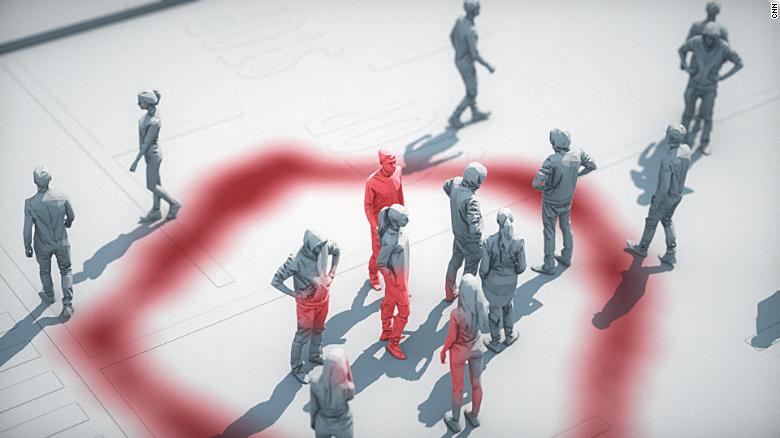(CNN)Physical distancing measures can help slow down the spread of the novel coronavirus, according to a new analysis out of the United States and the United Kingdom.
But one expert cautioned that the findings, however "politically convenient" they might be, are based on flawed data and should not be thought of as conclusive, but rather suggestive.
With currently almost 13.5 million confirmed cases worldwide and a lack of effective treatment or a vaccine, "the most pragmatic recommendation has been to advise physical distancing (referred to by some as social distancing) to minimize person-to-person transmission with a view to flattening the epidemic curve," wrote the study authors, led by Dr. Nazrul Islam, Oxford University physician-epidemiologist and medical statistician.
But there hasn't been much data to show whether it works or not.
So the researchers gathered and analyzed information on daily reported cases from 149 countries or regions both before and after five different physical or social distancing measures were put into place.
The measures were: school closures, workplace closures, public transport closures, restrictions on mass gatherings and lockdown restrictions on people's movement within countries or regions.
Real-world data: pros and cons
They found that on average, any physical distancing measure was associated with an overall reduction in Covid-19 incidence of 13% over the study period. Restriction on mass gatherings, in combination with school and workplace closure, appeared to be a key component associated with a decrease in Covid-19 incidence, they reported in a study published Thursday in the BMJ.
On the other hand, closing public transport was not associated with any additional benefit when the other four measures were already in place, suggesting that public transport could remain open "especially for those working in vital services, including health, care giving and emergency response roles."
The order in which these measures were put in place did not appear to matter, but when the estimates from all the countries were pooled together, the researchers found a greater reduction in incidence of Covid-19 was associated with earlier, rather than later, implementation of lockdown.
In an accompanying editorial, Thomas May, a research professor at the Elson S. Floyd College of Medicine at Washington State University, praised the researchers for using real-world data in their modeling, but pointed out that this strength is also problematic.
"Unfortunately, using such results is also the study's greatest weakness, making analysis dependent on the quality of the data from testing. Specifically, the authors relied on 'daily reported cases' compiled from 149 independent countries; data subject to variable quality, accuracy and inconsistent testing practices," May wrote.
"As a result, caution is warranted when interpreting the findings," he added.
Get CNN Health's weekly newsletter
Sign up here to get The Results Are In with Dr. Sanjay Gupta every Tuesday from the CNN Health team.
As an example, he points out that data from the United States, is "less than ideal" due to variation in testing practices from location to location, a lack of tests earlier in the pandemic and the lumping together of antibody testing from testing for active disease -- all of which weaken the associations that can be drawn.
Although the study provides support for physical distancing, it "cannot be definitive for the reasons outlined." But, he added, the measures probably are effective.


















